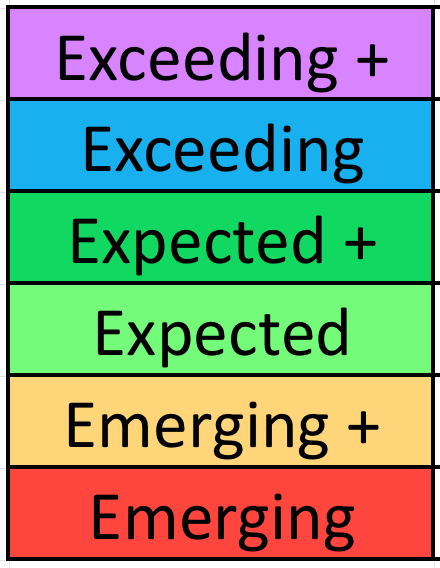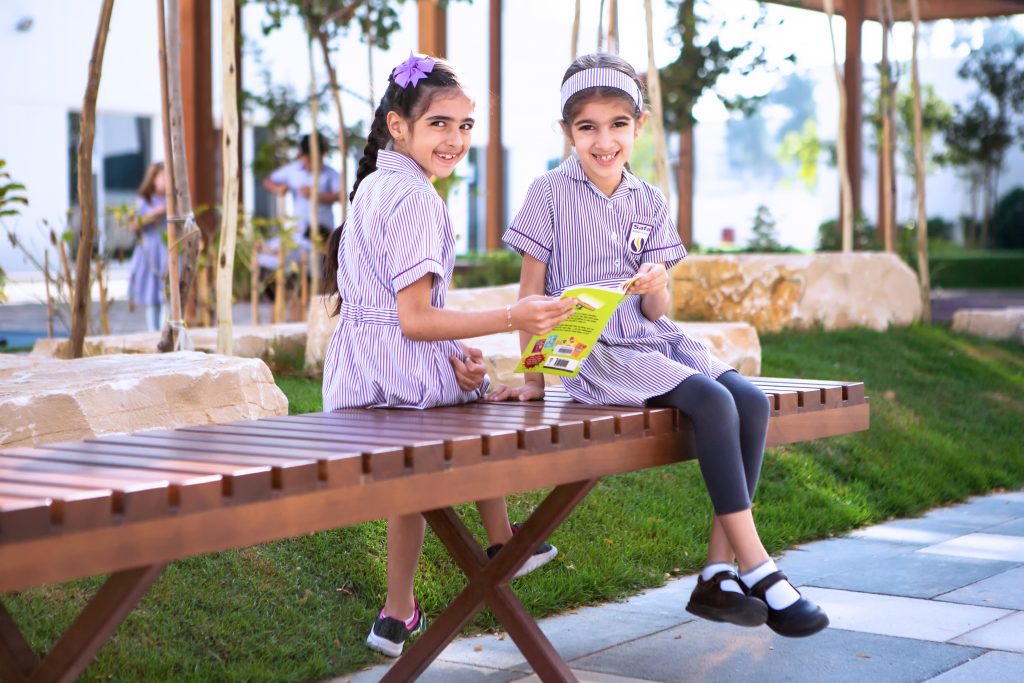Assessment
Foundation Stage & Primary
- Rationale
- Aims
- Assessment
- Feedback
- Reporting
- Learning Environment
At Safa British School, the monitoring of student progress and attainment remains paramount in all that we do. Assessment activities are meticulously selected to ensure they provide teachers and learners with the most valuable insights. Rigorous monitoring of progress and attainment allows us to ensure that students, including those of determination, continue to receive the support, challenge and opportunities which allow them to make better than expected progress in all curricular areas. Students are assessed against the UK Curriculum expectations throughout their time in the Foundation and Primary phases.
- To provide teachers with the information they need to plan learning experiences that cater for the needs of all students.
- To help students, and their parents, understand what learners can already do well and what they need to do to take the next steps in their learning.
- To identify gaps in learning which need to be addressed, both in the short term and long term.
- To regularly report information to parents which allow them to support their child in their learning.
- To make informed teacher judgements, at the end of each term, on each individual child’s attainment and progress.
- To continuously monitor the wellbeing data of all students so that direct links between student achievement and pastoral needs can be identified.
Staff at Safa British School have worked together to develop an assessment system that considers the criteria of the National Curriculum, whilst providing a greater focus mastering the curriculum. Assessment considers children’s strengths as well as areas where they need support. It consists of a combination of summative and formative strategies and a range of recording methods, as detailed below.
Our valuable feedback to children through dialogue and marking provides them with specific advice about improvements to their work. Children are given time to read and review their work following marking and reflect regularly on their learning. Children in older year groups are encouraged to peer and self-assess their work and, to identify next steps in their learning. This is done with the support of the class teacher.
Our reporting to parents cycle includes three written reports per year – one at the end of each full term – and, three face-to-face parent meetings per year.
As part of our learning environment guidelines and our approach to learning, all learning environments should promote and support innovative thinking. The importance of using the digital world as a 5th wall in the classroom is a specific area of focus. Teaching staff should be strategic in how best to utilize the space and resources available to them at SBS. With regards to leadership, they will constantly be looking at innovative designs and equipment that can be used to support the improvement of learning outcomes.
Foundation Stage
In the Foundation Stage at Safa British School, teachers systematically track students’ learning using Seesaw. Seesaw Skills is utilised as a formative assessment tool; assessing against the seven areas of learning in the new Early Years Foundation Stage Framework. Families have access to all learning which is uploaded to Seesaw and can communicate with the teacher directly using this tool. The Foundation Stage uses the gap analysis from Seesaw Skills to inform their summative judgement. Summative data is gathered at the beginning of each academic year as a baseline measure and then collected at the end of each subsequent term. This data is entered into our data tracking system which is iTrack. In line with the Early Years Foundation Stage curriculum, students are assessed as either emerging, expected or exceeding within the appropriate age and stage of each individual.
Year 1 Phonics Screening Check
In line with UK Curriculum standards, all students in Year 1 participate in the Key Stage 1 phonics screening check. This assessment is designed to ascertain how students are progressing with reading and phonics skills. The assessment is an informal test during which students are required to read a mixture of 40 real and nonsense words.
The phonics screening check is an informal test that children will need to complete at the end of year 1. During the test, which is designed to test their ability to decode words using their phonics knowledge, children will be required to read a mixture of 40 real and nonsense words. The phonics screening check is an important part of children’s early phonics education.
Formative Assessment
Seesaw Skills
This document breaks down our rationale for assessment within Safa British School and to set standards and expectations across our school community to ensure consistency and understanding in both the practice and purpose of assessment to ultimately improve teaching and learning.
Rationale for using Seesaw Skills at Safa Community School
A brief introduction for why the school chose to use Seesaw Skills to help all staff understand the rationale behind the decision and get behind your approach. By using Seesaw Skills, we assess children so that we can understand where gaps in their knowledge are starting to form. We record this information so that we can use it to inform the lesson planning process.
Summative Assessment
Moderation Grids
Teachers complete moderation grids for core subjects by inputting the children assessment results against a scale that is inline with the school’s six point scale. The teachers then make a moderated teacher judgement using a triangulation of evidence for maths, reading, writing, science and Social Studies.
iTrack
iTrack is used as a summative assessment tool to collect data at 4 different entry points: baseline, end of Term 1, Term 2 and Term 3. After moderating all raw summative data, teachers enter their judgement for each subject against our six-point scale attainment scale.

The data is then analysed by year groups, Inclusion and our curriculum team against our six-point scale which is categorised as Emerging, Expected and Exceeding for the point of year the children are being assessed. This information is then used to inform planning, curriculum modifications and interventions.
Summative Assessment
Safa Community is an inclusive school and we work hard to meet the needs of all our children. Class teachers are responsible and accountable for the progress and development of all pupils in their class. High quality teaching is available to all children, including those with additional needs. We work hard as a school to ensure that all additional support in the classroom is deployed effectively. Where a child is not making the expected progress the class teacher will work alongside the Inclusion Leader, parents and external agencies (where appropriate) to plan tailored support. We follow the Assess, Plan, Do, Review cycle to ensure all children are monitored closely and make progress. We use Individual Learning plans, where appropriate, which are reviewed with the child and parents termly. Nadine Hutchinson, Inclusion Leader, is available to provide advice to staff and families. We also maintain a list of focus children who we monitor closely following any issues or concerns alerted by staff or parents. We do not label any child by so called ‘ability’. All children are encouraged to achieve their best and become confident individuals living fulfilling lives.
Inclusion
SBS is an inclusive school and we work hard to meet the needs of all our children. Class teachers are responsible and accountable for the progress and development of all pupils in their class. High quality teaching is available to all children, including those with additional needs. We work hard as a school to ensure that all additional support in the classroom is deployed effectively. Where a child is not making the expected progress the class teacher will work alongside the Inclusion Leader, parents and external agencies (where appropriate) to plan tailored support. We follow the Assess, Plan, Do, Review cycle to ensure all children are monitored closely and make progress. We use Individual Learning plans, where appropriate, which are reviewed with the child and parents termly. Nadine Hutchinson, Inclusion Leader, is available to provide advice to staff and families. We also maintain a list of focus children who we monitor closely following any issues or concerns alerted by staff or parents. We do not label any child by so called ‘ability’. All children are encouraged to achieve their best and become confident individuals living fulfilling lives.
Pupil/Parent Engagement

Engaging pupils in their own assessment is a core philosophy of the school’s learning approach. The purpose of this approach is to have our pupils be able to articulate what they were ‘learning’ and not just what they were ‘doing’. Feedback and feed forward is a really important part of knowing what you’ve done well at and what you need to do next to succeed.
As well as internal summative assessments and UK comparative assessments, our students partake in all mandatory National Agenda Parameter assessments. In Y4 and Y6, students take a CAT4 cognitive ability assessment to benchmark their academic performance. At the end of each academic year, from Y2 – 6 students complete GL progress tests in English, mathematics and science. Students from Y2 – 6 also take part in termly NGRT (New Group Reading Tests) which allow us to track performance in reading.
For our parents, we aim to engage them with their child’s learning through using Seesaw. The purpose of assessment information is to inform planning and to identify children who may need extra support. A summative cohort document will be produced each term for English Reading, English Writing, Maths and Science. This will be based upon the mastery statements for each subject. Judgements will be made based on information from the assessment documents, assessment feedback from the children and teaching teams, observations and work contained in books. The cohort document will contribute to Pupil Progress Analysis meetings and discussions and contribute towards accountability data.
Parents have two ‘planned’ for pupil parent meetings where they meet to discuss their child’s progress and attainment. However, due to SBS open door policies, meetings can be arranged at any time throughout the year. The school constantly works on improving communication and building a partnership, so regular parental engagement activities take place throughout the school year.
